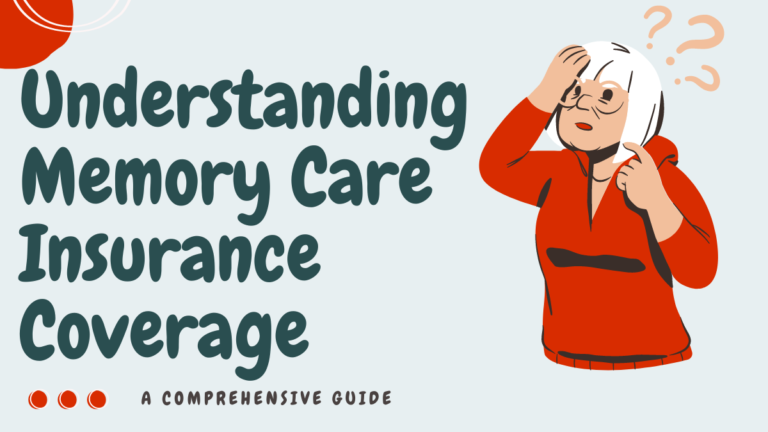The Unfortunate Reality: What Happens to Unused Long-Term Care Insurance?

Are you playing a risky game of chance when it comes to your long-term care insurance? The unfortunate reality is that many policyholders are clueless about what happens to their hard-earned premium dollars if they never end up needing the coverage they paid for. It’s time to uncover the mystery behind unused long-term care insurance and understand how it affects your financial well-being.
From vanishing premiums to limited benefits, join us on this eye-opening journey as we delve into the dark corners of a system that leaves many individuals high and dry. Get ready to discover why being proactive is crucial in safeguarding not just your future, but also your investment in long-term care insurance!
Table of Contents
Introduction: Definition and Background on Long-term Care Insurance
When most people think of insurance, they think of health insurance or car insurance. But there’s another type of insurance that’s becoming increasingly important: long-term care insurance.

Long-term care insurance is designed to cover the costs of long-term care, which can include anything from in-home care to nursing home care. It’s an important coverage to have because the costs of long-term care can be very expensive and are not typically covered by health insurance or Medicare.
Unfortunately, many people who purchase and let it be unused long-term care insurance. This can be for a variety of reasons, including changes in health or family circumstances. But what happens to all that unused long-term care insurance?
In most cases, the benefits from unused long-term care insurance policies are forfeited. That means that all the premiums you’ve paid over the years are lost and you’ll have to pay for any future long-term care costs out of pocket.
This is a harsh reality for many people, but it’s important to be aware of before purchasing a long-term care insurance policy. If you’re not sure you’ll need it, it may be better to save your money in another way.
Prevalence of Unused Long term Care Insurance
It’s no secret that long-term care insurance is often unused. In fact, a recent study found that only 8 percent of people who purchased long-term care insurance actually used it.
There are a number of reasons why this is the case. First, people are living longer and healthier lives. This means that they are less likely to need long-term care services.
Second, many people purchase long-term care insurance but never use it because they never need it. This is especially true for those who purchase policies at a young age.
Third, the cost of long-term care has increased significantly in recent years. This makes it difficult for many people to afford the coverage they need.
Fourth, there is a lack of awareness about long-term care insurance and its benefits. This means that many people aren’t even aware that such coverage exists.
The process of purchasing long-term care insurance can be complex and confusing. This makes it difficult for many people to understand what they’re buying and how it works.
Reasons for Unused Long-term Care Insurance
There are several reasons for unused long-term care insurance. The most common reason is that the policyholder never needs to use it. Other reasons include the policyholder dying before needing long-term care, or the policy lapsing because of non-payment.
Some people may think they don’t need long-term care insurance because they’re healthy and have no current health problems. However, this type of insurance is designed to cover care needs that arise due to an unforeseen event, such as an accident or illness. No one knows when they might need long-term care, so it’s important to have a policy in place just in case.
Another common reason for having unused long-term care insurance is because the policyholder moves into a nursing home or assisted living facility that is already covered by Medicare or Medicaid. In this case, the long-term care insurance will not be used because Medicare and Medicaid will pay for the majority of the costs associated with nursing home care.
Some people have purchased long-term care insurance but then decided not to use it because they don’t want to go through the hassle or expense of filing a claim. If you find yourself in this situation, it’s important to remember that most policies have a waiting period before benefits are paid out. This waiting period is typically 30 days, but it can vary depending on the insurer and the policy itself.
Legal Considerations for Unused Policies
There are a number of legal considerations to take into account when deciding whether or not to keep an unused long-term care insurance policy. For example, if you have a policy that was purchased through an employer, you may be subject to COBRA continuation coverage rules if you cancel the policy.
Additionally, there may be tax implications for cancelling a policy, so it’s important to speak with a financial advisor before making any decisions. If you have a joint policy with your spouse, you’ll need to consider how cancelling the policy will impact your spouse’s coverage.
Options for Unused Policies
There are a few different things that can happen to unused long-term care insurance policies. The first option is that the policyholder can cancel the policy and receive a refund of any premiums that have been paid.
The second option is that the policyholder can keep the policy in force and continue to pay premiums, even though they may never use the coverage. The third option is to sell the policy to another person who may be interested in using it.
The best course of action will vary depending on individual circumstances, but it’s important to be aware of all of the options before making a decision. Cancelling a policy may seem like the simplest solution, but it’s important to remember that any refunds will be taxed as income.
Keeping a policy in force may not be ideal if there’s no chance of ever using it, but it could provide peace of mind knowing that coverage is still in place. Selling a policy is another way to get some value out of an unused long-term care insurance, but it’s important to make sure that the buyer is financially able to maintain the coverage.
Ultimately, there’s no one-size-fits-all answer when it comes to unused long-term care insurance policies. It’s important to weigh all of the options and make a decision based on what’s best for your individual situation.

Alternatives to Long-term Care Insurance
There are a few different alternatives to long-term care insurance. One is to simply pay for long-term care out of pocket. This can be difficult to do, as the costs of long-term care can be very high. Another alternative is to purchase a life insurance policy that includes a rider for long-term care.
This way, if you need long-term care, the life insurance policy will pay out benefits that can be used to cover the costs. You could try to get government assistance to help cover the costs of long-term care. Unfortunately, this assistance is often difficult to qualify for and can be quite limited in what it covers.
Conclusion
In summary, unused long-term care insurance can be a difficult concept to wrap your head around. It is important to consider the implications of not using long-term care insurance and what could happen in the future if you do not use it correctly.
If you think that investing in long-term care insurance is right for you and your family, make sure to understand all of the policies surrounding it so that there are no surprises down the line.






